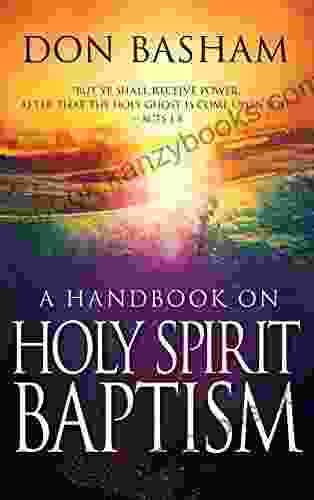Feqhicity and the Post-Occultation Authority of the Shia Magisterium: Unveiling the Creedal Framework

Shia Islam, with its rich theological and legal traditions, places paramount importance on the authority of its magisterium in guiding the faithful in the post-occultation era. Feqhicity, a fundamental concept in Shia Islamic jurisprudence, serves as the cornerstone for understanding the authority and responsibilities of the Shia scholars, known as the fuqaha.
4.7 out of 5
| Language | : | English |
| File size | : | 2845 KB |
| Text-to-Speech | : | Enabled |
| Screen Reader | : | Supported |
| Enhanced typesetting | : | Enabled |
| Print length | : | 84 pages |
| Lending | : | Enabled |
The Concept of Feqhicity
Feqhicity refers to the legal competence and authority vested in the Shia fuqaha. It encompasses the ability to derive religious rulings and laws (ahkam) from the primary sources of Islamic scholarship, namely the Quran and the prophetic traditions (Sunnah).
In the post-occultation era, characterized by the absence of the twelfth and final Imam, the fuqaha are recognized as the authoritative interpreters of religious texts and the guardians of Shia Islamic law. Their rulings and edicts (fatwas) provide guidance to the faithful on matters of faith, practice, and everyday life.
Historical Evolution of Feqhicity
The concept of Feqhicity emerged gradually over centuries of Shia theological discourse and legal development. Its roots can be traced back to the early Imamiyyah movement, which believed in the divine authority of the Imams as the successors of the Prophet Muhammad (ﷺ). However, it was during the post-occultation era that the concept fully blossomed and took on its current form.
Over time, the fuqaha established themselves as the intermediaries between the Imams and the Shia community. They assumed the responsibility of interpreting and transmitting the teachings of the Imams, and their rulings came to be regarded as authoritative by the faithful.
Authority and Responsibilities of the Shia Magisterium
The authority of the Shia magisterium is multifaceted and encompasses several key responsibilities:
- Interpretation and Application of Religious Texts: The fuqaha are responsible for interpreting and applying the Quran and Sunnah to derive religious rulings. They use various methods of exegesis and legal reasoning to extract the divine intent and formulate laws that govern the lives of Shia Muslims.
- Issuance of Fatwas:Fatwas are legal opinions issued by fuqaha in response to specific questions posed by individuals or communities. They provide guidance on a wide range of issues, from ritual practices to social conduct to matters of political and economic governance.
- Educating and Guiding the Faithful: The magisterium plays a crucial role in educating and guiding the Shia community. They establish religious seminaries (hawzas) to train future scholars and disseminate religious knowledge. They also engage in public speaking and writing to share their insights and provide moral and spiritual guidance.
- Preservation of Shia Traditions: The fuqaha are custodians of Shia Islamic traditions and are responsible for preserving and transmitting them to future generations. They compile and analyze religious texts, maintain historical records, and ensure the continuity of Shia beliefs and practices.
Challenges and Controversies
Despite its central role in Shia Islam, the concept of Feqhicity has not been without its challenges and controversies. One of the primary debates has centered around the extent of the fuqaha's authority and the limits of their interpretive powers.
Some Shia scholars have argued for a more expansive view of Feqhicity, emphasizing the fuqaha's role as the infallible interpreters of divine law. Others have taken a more cautious approach, recognizing the potential for human error and the need for constant re-examination of religious rulings.
Feqhicity is a complex and multifaceted concept that has shaped the development of Shia Islam throughout its history. It represents the authority and responsibility vested in the Shia fuqaha, who serve as the guardians of Shia Islamic law and the guides of the faithful in the post-occultation era. By understanding the concept of Feqhicity, we gain a deeper appreciation of the rich intellectual and legal traditions of Shia Islam and its enduring influence on the lives of its adherents.
4.7 out of 5
| Language | : | English |
| File size | : | 2845 KB |
| Text-to-Speech | : | Enabled |
| Screen Reader | : | Supported |
| Enhanced typesetting | : | Enabled |
| Print length | : | 84 pages |
| Lending | : | Enabled |
Do you want to contribute by writing guest posts on this blog?
Please contact us and send us a resume of previous articles that you have written.
 Book
Book Novel
Novel Page
Page Chapter
Chapter Text
Text Story
Story Genre
Genre Reader
Reader Library
Library Paperback
Paperback E-book
E-book Magazine
Magazine Newspaper
Newspaper Paragraph
Paragraph Sentence
Sentence Bookmark
Bookmark Shelf
Shelf Glossary
Glossary Bibliography
Bibliography Foreword
Foreword Preface
Preface Synopsis
Synopsis Annotation
Annotation Footnote
Footnote Manuscript
Manuscript Scroll
Scroll Codex
Codex Tome
Tome Bestseller
Bestseller Classics
Classics Library card
Library card Narrative
Narrative Biography
Biography Autobiography
Autobiography Memoir
Memoir Reference
Reference Encyclopedia
Encyclopedia Rebecca Mcdonald
Rebecca Mcdonald Micha Archer
Micha Archer The Three Initiates
The Three Initiates Simon Basher
Simon Basher Taymer Mason
Taymer Mason Tova Reich
Tova Reich Michael Tse
Michael Tse Renee Sanders
Renee Sanders Sara James
Sara James Laura Numeroff
Laura Numeroff Matthew C Walker
Matthew C Walker Valbona Muzaka
Valbona Muzaka Shirley O Corriher
Shirley O Corriher Lynda Balslev
Lynda Balslev Matej Kacvinsky
Matej Kacvinsky Michael Mcnally
Michael Mcnally Sal Gilbertie
Sal Gilbertie Stephanie D Berg
Stephanie D Berg Ryan Holiday
Ryan Holiday Stacy Shain
Stacy Shain
Light bulbAdvertise smarter! Our strategic ad space ensures maximum exposure. Reserve your spot today!

 Fernando BellReproductive Genetics in Israel and Germany: International Library of Ethics,...
Fernando BellReproductive Genetics in Israel and Germany: International Library of Ethics,...
 Bryce FosterEmpowering You with Nature's Cure: The Transformative Treatment for Cancer...
Bryce FosterEmpowering You with Nature's Cure: The Transformative Treatment for Cancer... William GoldingFollow ·6.4k
William GoldingFollow ·6.4k Joseph ConradFollow ·14.7k
Joseph ConradFollow ·14.7k Charles BukowskiFollow ·5.8k
Charles BukowskiFollow ·5.8k Elias MitchellFollow ·4.2k
Elias MitchellFollow ·4.2k Dominic SimmonsFollow ·17.4k
Dominic SimmonsFollow ·17.4k Natsume SōsekiFollow ·2.9k
Natsume SōsekiFollow ·2.9k Devin CoxFollow ·15.4k
Devin CoxFollow ·15.4k Brody PowellFollow ·14.6k
Brody PowellFollow ·14.6k

 Edward Reed
Edward ReedWhat Our Lungs Teach Us About Our Origins, Ourselves, and...
Our lungs, the unseen heroes of our existence,...

 Jonathan Hayes
Jonathan HayesFood Additives and Human Health: Unlocking the Secrets...
In the modern era,...

 Gabriel Garcia Marquez
Gabriel Garcia Marquez101 Grilled Seafood Recipes: Elevate Your Seafood...
Discover the Art...

 Javier Bell
Javier BellFundamentals of Applied Animal Nutrition: A Comprehensive...
Animal nutrition is a critical aspect of...

 Devon Mitchell
Devon MitchellUnleash Your Sweet Tooth: Dive into the Delightful World...
: Step into a Culinary Paradise Prepare to...

 Voltaire
VoltaireOver 50 Delicious Dishes Made With This Miracle...
Are you looking for new...
4.7 out of 5
| Language | : | English |
| File size | : | 2845 KB |
| Text-to-Speech | : | Enabled |
| Screen Reader | : | Supported |
| Enhanced typesetting | : | Enabled |
| Print length | : | 84 pages |
| Lending | : | Enabled |






